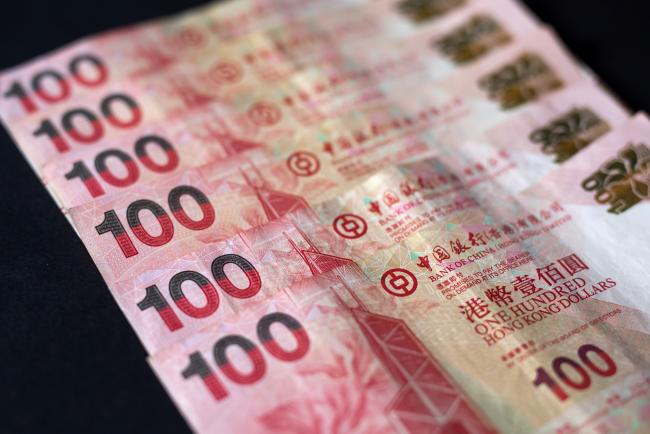(Bloomberg) -- A sudden cash squeeze is drying up Hong Kong dollar bond issuance.
Borrowers sold HK$12.7 billion ($1.6 billion) of the debt last month, the lowest since November 2017 and about half the issuance in May, according to data compiled by Bloomberg. They’ve raised HK$3.2 billion so far in July.
The Hong Kong dollar’s interbank funding costs, known as Hibor, have surged to the highest in more than a decade, as lenders hoard cash for big listings and corporates pay dividends. A smaller liquidity pool, which halved over the past year due to intervention by the city’s de facto central bank, has also contributed to the wild moves.
“For issuers, it’s not a good window to sell bonds -- they’d prefer to wait for liquidity to loosen and rates to fall back again,” said Becky Liu, head of China macro strategy at Standard Chartered (LON:STAN) Plc. “Borrowing costs will drop when the big IPOs are out of the way, as there’s no sign of capital outflows and the authorities won’t likely drain cash in the foreseeable future.”
The Asia Pacific beer unit of Anheuser-Busch InBev NV aims to raise as much as $9.8 billion in the city, with trading expected to start on July 19. Alibaba (NYSE:BABA) Group Holding Ltd. is said to have plans for an even larger listing, seeking as much as $20 billion. Previous large IPOs, such as Xiaomi Corp.’s in 2018, also helped trigger jumps in local borrowing costs.
The Hong Kong dollar’s one-month interbank rates extended gains from the highest level since October 2008, rising 29 basis points Thursday. The currency was little changed at HK$7.7861 per greenback as of 8:25 a.m. local time Friday. It’s close to the strongest level since May 2017.
(Updates prices throughout story.)
